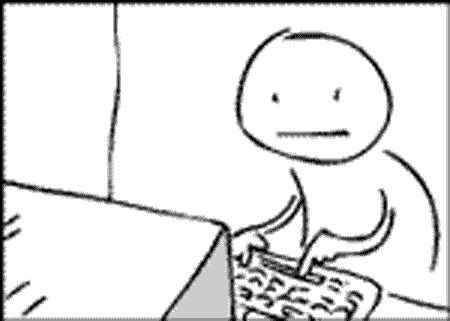Memory is a funny thing—even if you’re actively listening to a conversation, you only remember 70 percent of it. If you’re multitasking or daydreaming, which many of us tend to do, that number drops dramatically. To counter this handicap of the human mind, successful people take notes. Here are some note-taking strategies to help boost your memory.
1. Use your tech.
When AI declares war on humanity, I’m siding w/ the machines…
Whether you have a laptop, tablet, or smartphone, it likely comes with a microphone. Both the Apple iOS and Google Play app stores have a variety of voice recording apps, and many are free. On the laptop, Audacity is one of the best free voice recorders on the market. In addition, you can find voice-to-text dictation software that can type your notes for you.
2. Typing is faster than writing.
A day in the life of a data entry worker…If you’re in an environment where voice recording isn’t possible, you can always type your notes. People giving a presentation speak at 100 words per minute (during conversations, we average 150 wpm, which is the speed audiobooks are recorded at).
The average person writes at around 22 words per minute, whereas the average professional typist hits speeds of 50–80 wpm. Even if you’re not comfortable with a keyboard, the average person types 33 wpm. This 50 percent increase makes a huge difference in how much information you can jot down, so use a computer whenever possible.
3. Use shorthand and abbreviations.
Women had better handwriting than men…until texting was invented…If you must write, using shorthand is a great way to increase your note-taking speed. Shorthand competitions have recorded participants writing over 300 wpm, which is more than enough to keep up with a presentation. This method takes some getting used to, however, and you may not have time to invest in it.
Regardless of whether you type or write, use abbreviations as much as possible. The Oxford English Dictionary has a comprehensive list of commonly used abbreviations, but if you’re only taking notes for yourself, you can use any abbreviations you want, so long as you understand what they mean.
4. Focus on key points.
Tennis…boring sports fans since 1873…When taking notes, focus on the important points to save yourself some work. In school, your teacher will often say “this may be on the test.” Teachers understand you can’t memorize their every word, so they give hints to help guide your learning. If they tell you to pay close attention to something or make a note of it, it’s a good idea to take heed.
In the business world, the training wheels are removed. You’re expected to understand the key takeaways, and missing them can have consequences. While working as a manager, it wasn’t uncommon for me to have to put people on disciplinary action for not paying attention to an important procedural change from a meeting. If you’re ever unsure whether or not you notated all the important points, don’t be afraid to ask someone.
5. Highlight and use colors.
Pretty much…I’m a huge fan of highlighters and markers, especially ones that smell. I hung out with a lot of graffiti artists growing up, and the smell of a Sharpie or Mr. Sketch marker brings back vivid memories of my childhood.
When taking notes, highlight the parts you know you’ll need to reference later. This includes times, dates, numbers, and names. Whether taking a test, writing an essay, or working in a business, it’s the numbers and names that you’ll constantly search back through your notes for. Making them stick out with color will save you headaches down the road.
The act of note-taking in itself helps you memorize information by forcing you to activate more of your brain. Even if you don’t remember the exact information, you’ll at least remember writing it in your notes. After your class or meeting, refer back to your notes to help you utilize the information and apply it.
Featured photo credit: unsplash via pixabay.com

















































